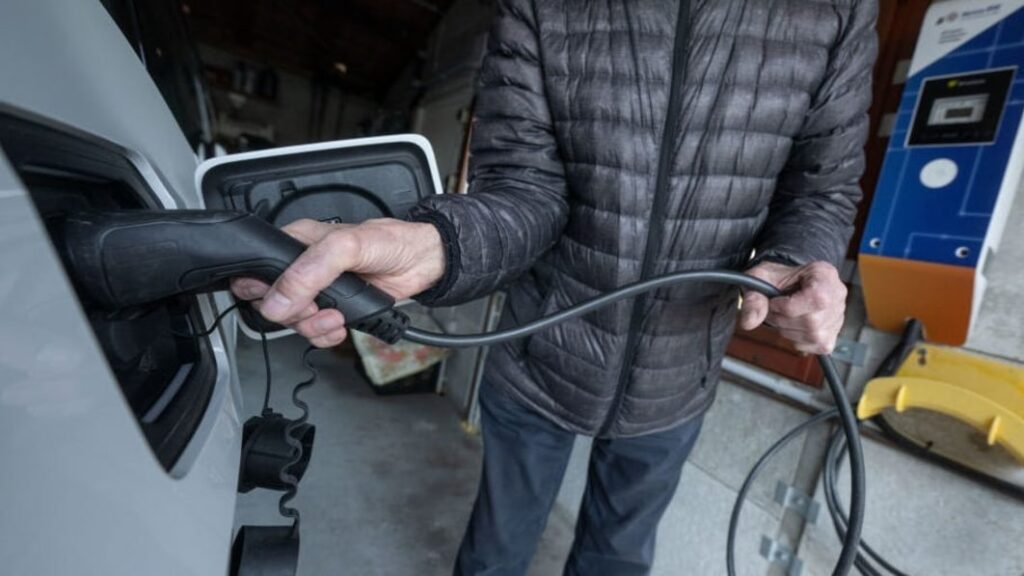That shiny new electric car you bought will cost more to insure — here's why

A new EV sold for $58,725 on average in January. That plays a role in the fact that
insuring an EV might cost drivers more.
Ram
Insuring an EV might differ from insuring a gas-powered vehicle.
EVs have high-value batteries and costly electronics.
Car-buyers should understand the nuances of EV insurance and why it might cost more.
There are certain nuances to insuring electric vehicles that car shoppers might want to know before they commit.
Electric cars have a lot of similarities to gas-powered cars, but they also bring some distinct differences. Right now, new EVs cost more on average. They have powerful batteries. And they’re more electronic than ever.
All of those factors could play a role in an EV owner’s insurance policy.
What car-owners need to know about the cost of EV insurance
Drivers have a lot to weigh before going electric, like an EV’s range, charging infrastructure, and how it fits into their lifestyle. Variables that influence their auto insurance policy are equally as important, starting with cost.
The latest estimate from NerdWallet said the national average cost of car insurance stands at about $2,148 per year. Meanwhile, the same for EVs is $2,280 annually, according to a Forbes Advisor analysis. That could mean average annual premiums of $1,830 for a Chevrolet Bolt or $4,066 for a Tesla Model S, says financial services company Bankrate.
So why is that? Generally, more-expensive vehicles are more expensive to cover, and most EVs are, right now, have steeper price tags; a new one sold for $58,725 on average in January, according to Kelley Blue Book.
Their batteries are also costly, and high in value. EVs might have less mechanical parts than an internal combustion engine vehicle, but they’re chock-full of expensive electronic components and sensors.
“Those parts can be pricey,” according to insurance provider Progressive. “If the battery pack is damaged, certain safety protocols are often necessary, adding more to the repair bill. Plus, there aren’t as many shops with technicians trained to fix electric vehicles versus traditional vehicles.”
Provider State Farm said an EV battery repair could cost anywhere from $5,000 to $15,000, and would likely require costly, specialized labor.
While collision and property damage liability claims for EVs tend to happen at lower frequencies than with conventional vehicles, according to the Highway Loss Data Institute, the severity of claims tends to be higher. But that’s been lowering over time.
Other savings are important to remember
This is where car-buyers have to weigh an EV’s total cost of ownership, according to agency AAA. Where EV insurance and upfront costs look more than with a gas-powered car, drivers could see substantial fuel and maintenance costs-savings from going electric. They also come with lower repair and tire costs.
One AAA estimate suggests owning an EV costs 60 cents per mile, compared with 75 cents per mile for a medium SUV and 69 cents for a medium sedan.
Understanding auto pricing overall is unsurprisingly top of mind for buyers, Jessica Stafford, SVP of consumer solutions at Cox Automotive, said.
“That’s the biggest question that consumers have holistically,” Stafford said, “and those consumers are asking that about EVs, too: Help me understand the total cost of ownership, help me understand what this looks like, and what happens when I need repairs.”



